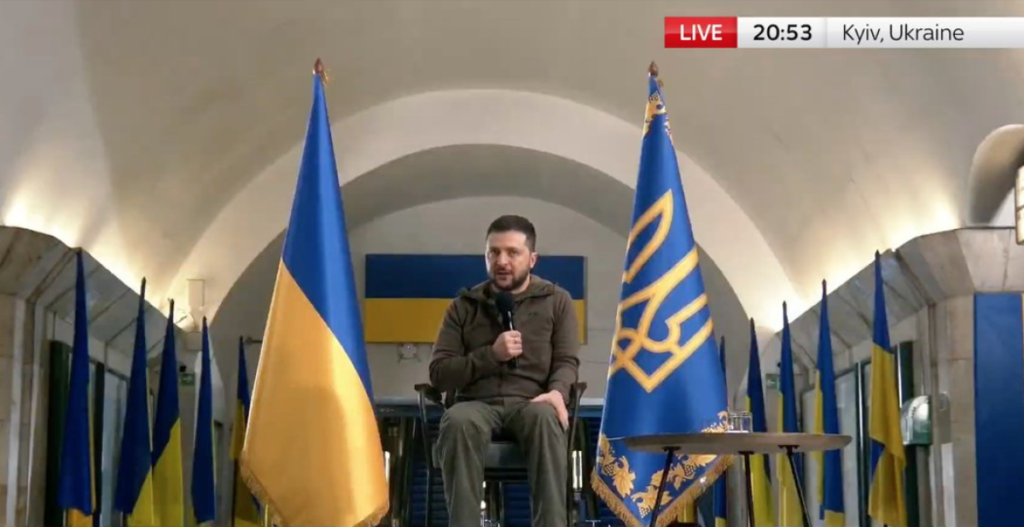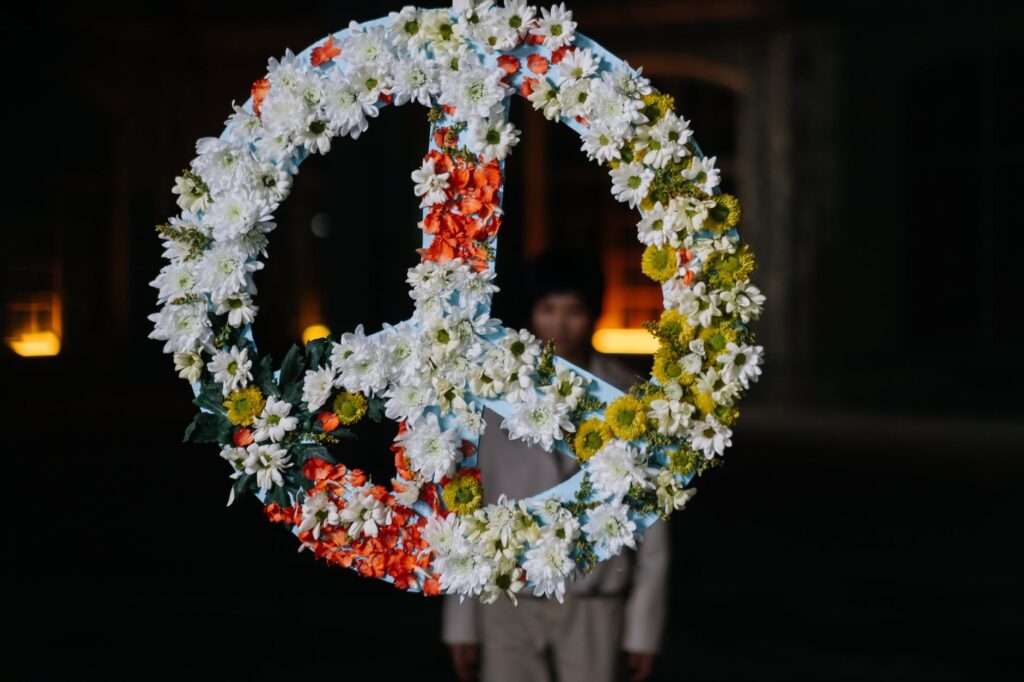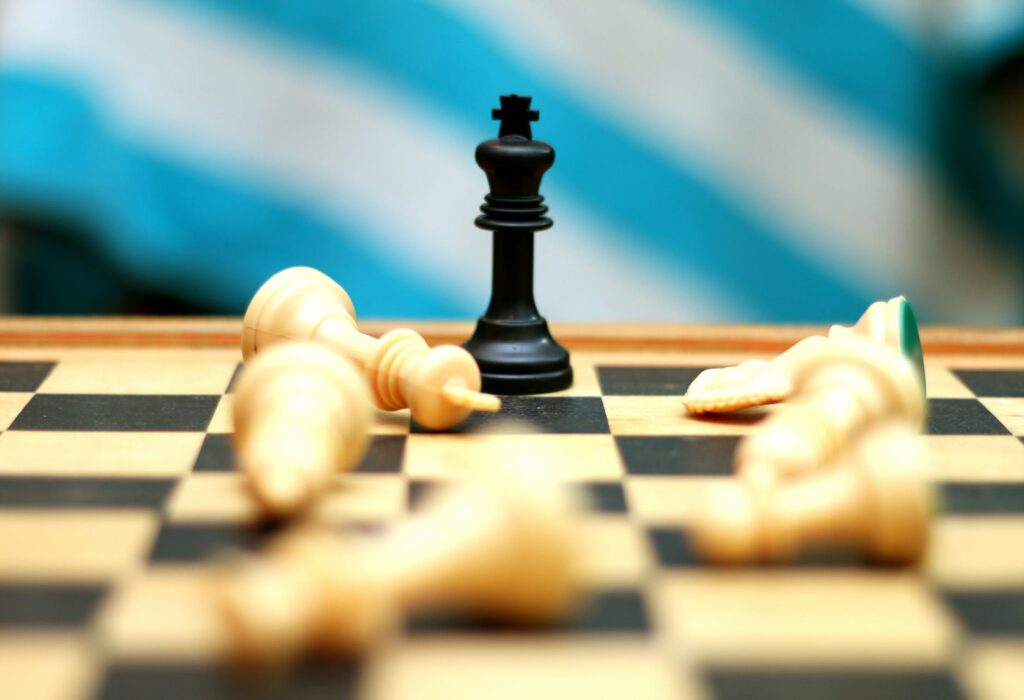
By John Varoli, Substack, 11/10/23
John Varoli is a former foreign correspondent for New York Times, Bloomberg and Reuters TV. Trained as a U.S. foreign policy expert with a focus on Russia and Ukraine.
On Wednesday, I attended a Reuters conference in New York that gathered top CEOs and government officials to discuss global economic and technology issues. I attended as an energy expert. Alas, Reuters had a surprise guest — Vladimir Zelensky. Indeed, media support for Ukraine is a lucrative business.
His interview was conducted live by Reuters via video link. For about 20 minutes, Zelensky skillfully deceived his audience with a performance worthy of an Oscar. The mesmerized audience lapped up every word. They simply don’t know any better. But the journalists in the room knew better. And that’s a huge problem.
Reuters’ Editor-in-Chief asked the questions, all of them polite and easily answered. No one else was allowed to ask a question. I could dismiss this interview as access journalism and Reuters’ wish not to upset Zelensky. But hundreds of thousands of people have died and millions more forced from their homes in a conflict incited by NATO expansion and which was easily avoidable. Therefore, I need to speak out.
Not for a moment was Zelensky put in an uncomfortable position. One question gently touched on Ukraine’s “counteroffensive” without mentioning the massive losses of Ukrainian soldiers and NATO equipment; another question delicately brought up the issue of NATO support in light of the conflict in Gaza; and a third question inquired about what a Trump victory would mean for Ukraine (without mentioning the politically-motivated prosecution that Trump faces).
Even when the question concerned a potentially difficult topic — corruption in Ukraine — it was phrased to make Zelensky look like an anti-corruption crusader, even though 77% of Ukrainians blame him for rampant corruption. (Reuters really hadn’t seen this recent poll of Ukrainians?)
The interview ended with an insult to the Ukrainian people. “Can you tell us one thing that has made you laugh amid the tears of the past two years?” With a big smile on his face, Zelensky answered that his children and his dogs are his greatest joys.
“Sometimes I think that the best way would be if this planet would be the planet of dogs. Sometimes I don’t understand people. Crazy. Crazy people,” concluded Zelensky, as the audience joined him in a burst of laughter.
All the death and destruction is indeed a joke for Zelensky, who grows wealthy on this war as an international celebrity and NATO satrap. Far from the laughter, however, Zelensky’s nationalist regime has turned Ukraine into a dead zone where the funeral and cemetery business is booming; where anyone perceived as a threat to Zelensky’s rule is labeled a “Russian agent” and jailed or killed. Ukraine is a country of horrors where mothers and wives scream in anguish as hundreds of thousands of soldiers have returned home in boxes, if their bodies can even be found.
Ukraine faces a far superior enemy that dominates the skies, the sea and the ground. Several generations of Ukrainian men are being wiped out. A merciless, tyrannical Zelensky gleefully sends his men into a meat grinder. Of course, there is also the tremendous misery that Zelensky’s regime has brought on the people of the rebel Donbass region and Crimea, both of which want to be with Russia.
This conflict could have been avoided if only Zelensky and his Western masters had agreed to keep Ukraine neutral as was stated in the country’s constitution until December 2014; as well as respect the right to self-determination of the ethnic Russians in the Donbass and Crimea regions.
Ukraine’s population is now half of what it was before 2014, with millions scattered across the globe; its economy and industrial base wrecked, and lawlessness and corruption rampant. The country has no future. None whatsoever. This is Zelensky’s legacy. But Reuters, the most powerful news agency on the planet, is apparently not aware of these facts. Why? Because it doesn’t ask the right questions.
Well, since Reuters has trouble conducting a rigorous interview with Zelensky, I’m offering my assistance. Here are 16 questions that a professional and neutral journalist would have asked Zelensky:
- Political freedom. Mr Zelensky, You’ve shut down opposition parties and jailed those who speak out against your rule. Dissidents have fled abroad to escape your brutal secret police, the SBU, heir to the KGB. You justify this repression by accusing the opposition of being “Russian agents”. How can you call Ukraine a “democracy” with such human rights abuses?
- Press freedom. Opposition and dissenting media have been shut down and journalists intimidated. What are you afraid of? Will you ever allow freedom of the press to return to Ukraine?
- Religious freedom. The Ukrainian Orthodox Church, which used to represent half of the country’s population, faces brutal persecution; priests are jailed and churches closed. You justify this heinous policy with accusations that the Church is under Kremlin control. In fact, the UOC’s only “sin” is calling for peace and Slavic unity. Do you plan to entirely dismantle the Church? And do you realize that this is a gross violation of EU and international law?
- Presidential elections. Do you plan to hold presidential elections? Please explain Why or Why not? And what do you think about your declining popularity and the rising popularity of General Zaluzhny?
- Palace intrigue. There’s evidence of infighting among the Ukrainian elite, especially in light of the recent murder of Zaluzhny’s assistant. Are you afraid that you might be removed from power in a violent coup by your own military?Cheering on a 98-year old Nazi murderer in Canada’s parliament
- Peace. You came to power in May 2019 on a platform of peace with Russia. About 80% of Ukrainians supported you on this. They wanted peace with Russia, with whom they are related by language, blood, culture, and religion. Today, hundreds of thousands of your men are dead; 22% of your land taken away. It didn’t have to be like this. You could have made a deal with Russia. How do you justify the carnage of the past 20 months?
- Nationalist extremism. Ukrainian nationalists, such as Azov Battalion, are very influential in Ukraine and glorify World War 2-era Nazi collaborators that slaughtered thousands of Jews and Poles. Why do you tolerate Nazi supporters? And why did you cheer for the 98-year old Nazi murderer Yaroslav Hunka when you visited Canada’s Parliament in September?
- Donbass and Crimea. You very well know that Donbass and Crimea are populated by ethnic Russians who want to join the Russian Federation. Why won’t you allow them freedom and the right to self-determination?
- Murder of civilians in Donbass. So, you claim that the people in rebel Donbass are still “Ukrainians”, but yet your forces constantly bomb their cities, such as Donetsk and Gorlovka, with banned cluster bombs. So, why do you kill people who you consider to be “Ukrainian citizens”?
- Brutal conscription. We’ve seen many videos of Ukrainians snatched off the streets by your press gangs and forcibly sent to the front. Why do you think many Ukrainians don’t want to fight for you and are resisting the draft?Zelensky truly deserves an Oscar for his acting
- Attacks on nuclear power plants. Many reports indicate that Ukraine is targeting nuclear reactors, such as the one in Zaporozhye and the one in the Kursk region. This is extremely reckless and dangerous. How do you justify such attacks?
- Battle of Avdeevka. This key fortress is clearly falling to the Russians. When it falls, what does this mean for Ukrainian forces? Will this lead to a total collapse of the Donbass front, as many experts predict?
- Worse case scenario. What is your plan if your eastern defenses collapse and the Russians push all the way to the Dnieper River — what will you do then? Will you flee the country and retreat to your villa in Miami? By the way, how much property do you and your family own outside of Ukraine?
- Bankrupt, devastated country. Most of your population has fled; economy destroyed; national bankruptcy on the horizon. How do you plan to rebuild Ukraine? Are you ready for years of hostility with Russia? Don’t you realize that neither Ukraine nor the West can afford years of conflict with Moscow, which has nearly unlimited resources?
- NATO expansion. Don’t you realize that NATO expansion into Ukraine is a death sentence for Ukraine? Moscow will never allow it. Also, is it true that in spring 2020 you were ready to make peace with Moscow, but then the British intervened and pushed you to end those talks?
- Detractors. The number of your detractors in the West is growing and they ridicule you as an ungrateful, annoying beggar. How do you feel about that?


